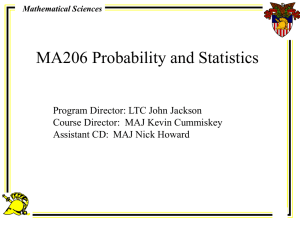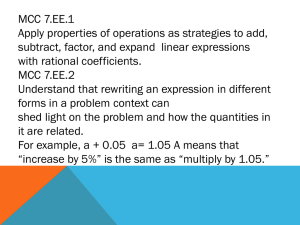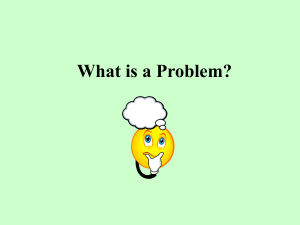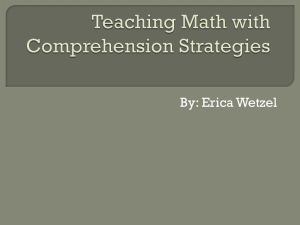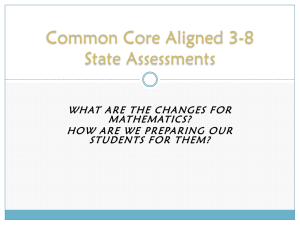A Balanced Math Curriculum - Mercer Island School District
advertisement
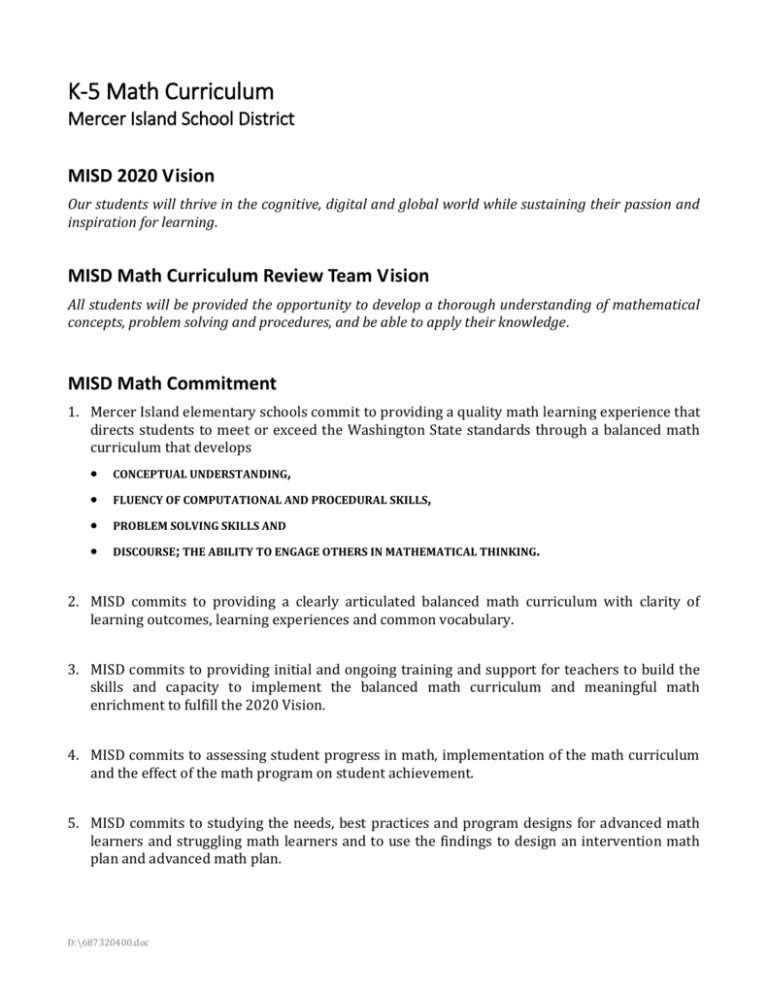
K-5 Math Curriculum Mercer Island School District MISD 2020 Vision Our students will thrive in the cognitive, digital and global world while sustaining their passion and inspiration for learning. MISD Math Curriculum Review Team Vision All students will be provided the opportunity to develop a thorough understanding of mathematical concepts, problem solving and procedures, and be able to apply their knowledge. MISD Math Commitment 1. Mercer Island elementary schools commit to providing a quality math learning experience that directs students to meet or exceed the Washington State standards through a balanced math curriculum that develops CONCEPTUAL UNDERSTANDING, FLUENCY OF COMPUTATIONAL AND PROCEDURAL SKILLS, PROBLEM SOLVING SKILLS AND DISCOURSE; THE ABILITY TO ENGAGE OTHERS IN MATHEMATICAL THINKING. 2. MISD commits to providing a clearly articulated balanced math curriculum with clarity of learning outcomes, learning experiences and common vocabulary. 3. MISD commits to providing initial and ongoing training and support for teachers to build the skills and capacity to implement the balanced math curriculum and meaningful math enrichment to fulfill the 2020 Vision. 4. MISD commits to assessing student progress in math, implementation of the math curriculum and the effect of the math program on student achievement. 5. MISD commits to studying the needs, best practices and program designs for advanced math learners and struggling math learners and to use the findings to design an intervention math plan and advanced math plan. D:\687320400.doc A Balanced Math Curriculum Conceptual Understanding Conceptual understanding is the development and understanding of the logical relationships of mathematical ideas, concepts and frameworks. Students develop understanding through their interaction with and exploration of mathematical ideas and activities. They demonstrate understanding though the ability to flexibly operate in the five basic representations of mathematics concepts: Physical/Concrete. Students build the understanding of physical models that represent mathematical ideas, processes and problems and use physical models to solve problems. (Use of models and manipulatives) Pictorial/Graphic. Students are able to create a graphic or Mathematical picture that represents a mathematical idea, process or Representations problem and use the graphic or picture to solve problems. Symbolic/Numeric. Students are able to use symbols and numbers to represent a mathematical idea, process or problem and use mathematical notation when solving problems and be able to fluently complete math processes and operations. Applications. Students are able to model and solve a mathematical problem as well as describe a situation that uses a math representation or process. Verbal/Linguistic. Students are able to describe mathematical ideas, strategies and processes, justify solutions or strategies and generalize concepts. Computational and Procedural Fluency Students will develop mastery of the core skills, procedures and standard algorithms as well as recall of math facts with automaticity by the benchmarks proscribed by the Washington State Standards and as indicated by the scope and sequence in the appendix of this curriculum description. Fluency and mastery is evident when students are Flexible, Accurate, able to Communicate clearly, and Efficient (FACE) with the use of the skills, procedures and algorithms. Problem Solving Students will demonstrate the ability to solve problems in a variety of forms and contexts. Forms will include authentic and real world situations as well as mathematical situations that extend conceptual understanding. Students will be considered proficient problem solvers when they can effectively use and describe a problem solving process and strategies. Discourse Students will engage each other and adults in mathematical thinking to… describe, justify (defend or prove) or generalize (extend) their mathematical understanding, strategies or solutions. Students will demonstrate their ability to think about and communicate mathematical ideas with clarity and precision. D:\687320400.doc D:\687320400.doc Math Curriculum Description & Alignment Math Expressions was adopted in the spring of 2009 as the core curricular materials. Measurement Topics (Power Standards) aligned to the State Standards and Math Expressions K-5 Core Structures & Routines o Quick Practice – opening review for five minutes of each math period, no more o Math talk – student to student exchange of mathematical ideas (solve, explain, question and justify) o Building concepts – guided lessons on math concepts building on prior knowledge, developing understanding from concrete and accessible models to formal math ideas and language o Helping community – in work with a peer, students learn how to be helpful members of a math community o Student leaders – all students take a leadership role in math routines Pacing Guides with grade level vocabulary lists Rubrics for each topic with indicators for level 2 & 3 Teacher Training & Professional Development Initial training will take place on August 27th & 28th. Follow-up meetings will be scheduled during the year through district directed early release days and optional professional development sessions, as needed. MISD is participating in a Math Expressions Users Group organized by the ESD. This allows for a sharing of ideas and resources across more than a dozen districts. MISC is partnering with Bellevue School District (BSD) as they use Math Expressions. This partnership includes use of professional coaches and access to professional development opportunities. Professional development for ensuing years will include: o Initial use for new teachers, along with grade level mentors o DMI Training in partnership with BSD Program Evaluation [This section is yet to be developed. It will include: Description of a student assessment plan Description of a plan for monitoring implementation of the curriculum (CBAM?) Description of a curriculum assessment plan] Intervention & Advanced Math Program Study [This section is yet to be developed. It will include: Description of the process for studying intervention and advanced math learning needs, best practices and program designs D:\687320400.doc Description of the findings of the study Program design recommendations] Parent Communication & Resources Plans are in the works for developing a web-based resource for parents for mathematics Electronic Resources including the student and teacher books online, links to activities and supplemental resources D:\687320400.doc

